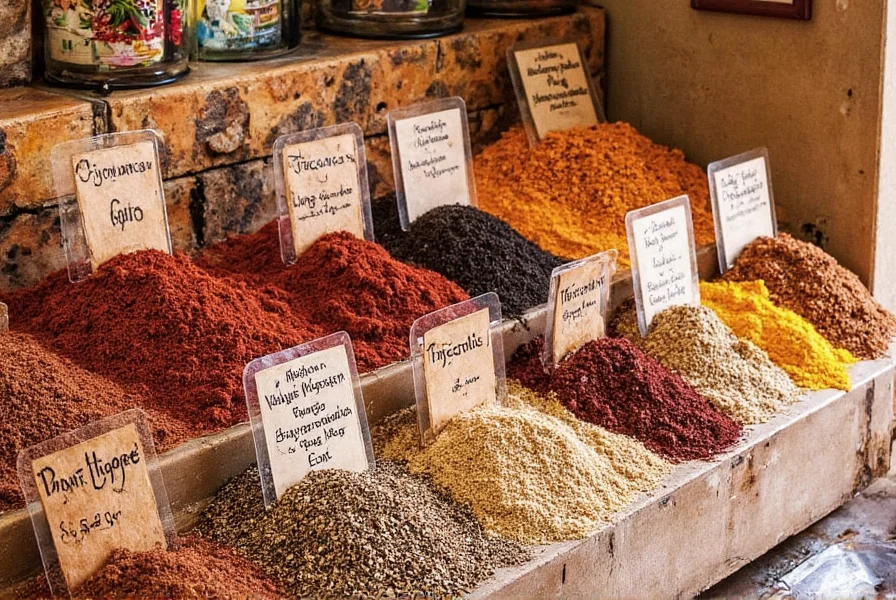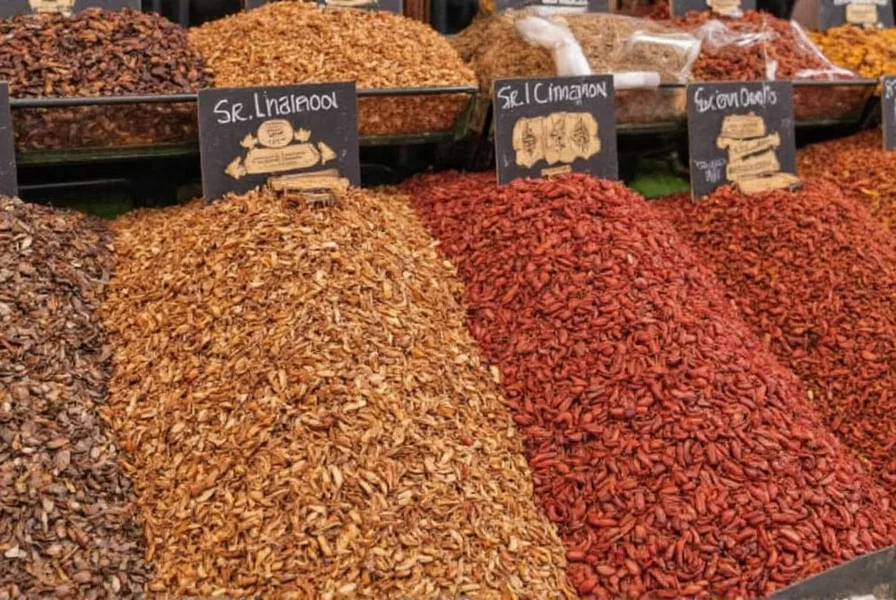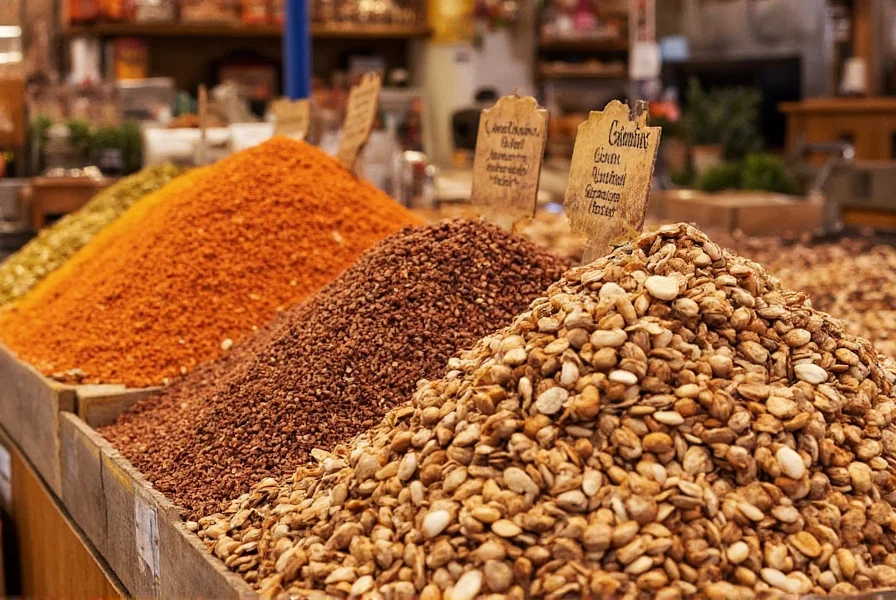Specialty spice retailers known as Cinnamon Bazaars have become increasingly prominent in the global food landscape, offering curated selections that go far beyond standard supermarket offerings. These establishments distinguish themselves through meticulous attention to spice quality, origin transparency, and educational customer experiences that transform ordinary spice shopping into a cultural journey.
The Origins and Evolution of Cinnamon Bazaars
The term "bazaar" originates from Middle Eastern and South Asian market traditions where merchants gathered to trade exotic goods. Modern Cinnamon Bazaars honor this heritage while adapting to contemporary consumer expectations. Unlike generic spice shops, dedicated cinnamon marketplaces emerged in response to growing consumer awareness about cinnamon varieties, particularly the distinction between Ceylon cinnamon (often called "true cinnamon") and the more common Cassia cinnamon.
These specialty retailers typically source directly from cinnamon-growing regions including Sri Lanka, Indonesia, Vietnam, and China. The most reputable establishments maintain transparent supply chains, often featuring origin stories for each cinnamon variety they offer. This direct relationship with growers allows them to provide fresher products with superior flavor profiles compared to mass-market alternatives.
| Cinnamon Variety | Primary Growing Regions | Flavor Profile | Common Uses |
|---|---|---|---|
| Ceylon Cinnamon | Sri Lanka, India | Delicate, sweet, complex | Baking, desserts, delicate sauces |
| Cassia Cinnamon | China, Indonesia, Vietnam | Bold, intense, slightly bitter | Spice blends, robust dishes, commercial products |
| Saigon Cinnamon | Vietnam | Strongest flavor, high oil content | Commercial baking, spice extracts |
What Distinguishes a Quality Cinnamon Marketplace
Authentic cinnamon bazaars prioritize several critical elements that differentiate them from standard spice retailers. First and foremost is freshness—premium cinnamon loses potency rapidly after grinding, so the best establishments grind spices to order and maintain rigorous inventory rotation practices. Many offer both whole cinnamon sticks (quills) and freshly ground options, recognizing that different culinary applications require different forms.
Another distinguishing factor is educational engagement. Knowledgeable staff at reputable cinnamon marketplaces can explain the chemical differences between cinnamon varieties, particularly the coumarin content (higher in Cassia, potentially problematic in large quantities). They provide guidance on appropriate substitutions and usage levels based on the specific cinnamon variety's intensity.

Navigating the Cinnamon Bazaar Experience
Visitors to specialty cinnamon marketplaces should approach their experience with specific considerations. Unlike conventional grocery shopping, these establishments encourage sensory engagement—most welcome customers to smell and sometimes taste different cinnamon varieties before purchasing. This hands-on approach helps consumers discern subtle flavor differences that significantly impact culinary results.
When evaluating cinnamon quality at these specialty markets, look for several indicators: vibrant color (darker for Cassia, lighter reddish-brown for Ceylon), strong aromatic intensity, and clean breaks when bending a quill (indicating proper drying and freshness). Reputable cinnamon bazaars will readily provide harvest dates and specific origin information, recognizing that cinnamon quality varies significantly by growing region and harvest season.
Practical Applications and Culinary Benefits
The investment in premium cinnamon from specialized marketplaces delivers tangible culinary advantages. Professional chefs and discerning home cooks recognize that superior cinnamon varieties enhance dishes with nuanced flavor profiles rather than simply adding generic "cinnamon taste." For example, Ceylon cinnamon's delicate sweetness works beautifully in custards and delicate pastries where Cassia's intensity would overwhelm other flavors.
Cinnamon connoisseurs at these specialty markets often recommend maintaining multiple cinnamon varieties in one's pantry. Having both Ceylon for delicate applications and Cassia for robust dishes allows for greater culinary precision. Many establishments offer sample sizes or small trial packages, enabling customers to experiment with different varieties before committing to larger quantities.

Building Relationships with Your Local Cinnamon Marketplace
The most rewarding experiences with cinnamon bazaars develop through ongoing relationships. Regular customers often receive personalized recommendations, advance notice of rare harvests, and access to seasonal specialties. Many establishments host educational events about spice history, proper storage techniques, and innovative culinary applications.
When establishing a relationship with a cinnamon marketplace, communicate your primary culinary interests—whether baking, international cuisine, or health-focused applications. Knowledgeable staff can then tailor recommendations to your specific needs. Some premium cinnamon retailers also offer subscription services that deliver freshly harvested, seasonal varieties directly to customers, ensuring optimal flavor and potency.
Common Questions About Cinnamon Marketplaces
What's the difference between Ceylon and Cassia cinnamon available at specialty bazaars?
Ceylon cinnamon (often called "true cinnamon") comes primarily from Sri Lanka and features multiple thin, delicate layers with a complex, sweet flavor profile and lower coumarin content. Cassia cinnamon, typically from China or Indonesia, has a single thick, hard quill with a more intense, slightly bitter flavor and higher coumarin levels. Specialty cinnamon bazaars clearly distinguish between these varieties and provide guidance on appropriate culinary applications for each.
How can I verify the freshness of cinnamon when shopping at a specialty marketplace?
Fresh cinnamon should have a strong, pleasant aroma immediately noticeable when the container is opened. Whole quills should snap cleanly rather than bend limply, and ground cinnamon should have vibrant color without dark spots. Reputable cinnamon bazaars provide harvest dates and maintain small inventory batches with high turnover. Ask staff about their inventory practices—establishments that grind spices to order typically offer the freshest products.
Why do specialty cinnamon marketplaces charge more than grocery stores?
Premium pricing reflects several factors: direct sourcing from growers, smaller batch processing, rigorous quality control, and often organic or fair-trade certifications. Specialty marketplaces typically maintain proper storage conditions to preserve volatile oils, and many offer freshly ground options. The price difference represents not just the product itself but the expertise, quality assurance, and traceability that ensure superior flavor and safety compared to mass-market alternatives.
Can I use different cinnamon varieties interchangeably in recipes?
While possible, substituting different cinnamon varieties can significantly alter your final product. Ceylon cinnamon's delicate flavor works best in subtle applications like custards and light pastries, while Cassia's intensity suits robust dishes like spice cakes or mulled wine. Saigon cinnamon, the strongest variety, excels in commercial applications where maximum flavor impact is needed. Specialty cinnamon bazaars provide specific substitution ratios (typically 1:2 or 1:3) when switching between varieties to maintain proper flavor balance.
How should I store cinnamon purchased from a specialty marketplace?
Store cinnamon in airtight containers away from light, heat, and moisture. Whole cinnamon sticks maintain potency for 3-4 years under proper conditions, while ground cinnamon remains optimal for 6-12 months. Specialty marketplaces often provide opaque, airtight containers specifically designed for spice preservation. Avoid storing near stoves or in clear containers on open shelves, as these conditions accelerate flavor degradation through exposure to heat and light.











 浙公网安备
33010002000092号
浙公网安备
33010002000092号 浙B2-20120091-4
浙B2-20120091-4